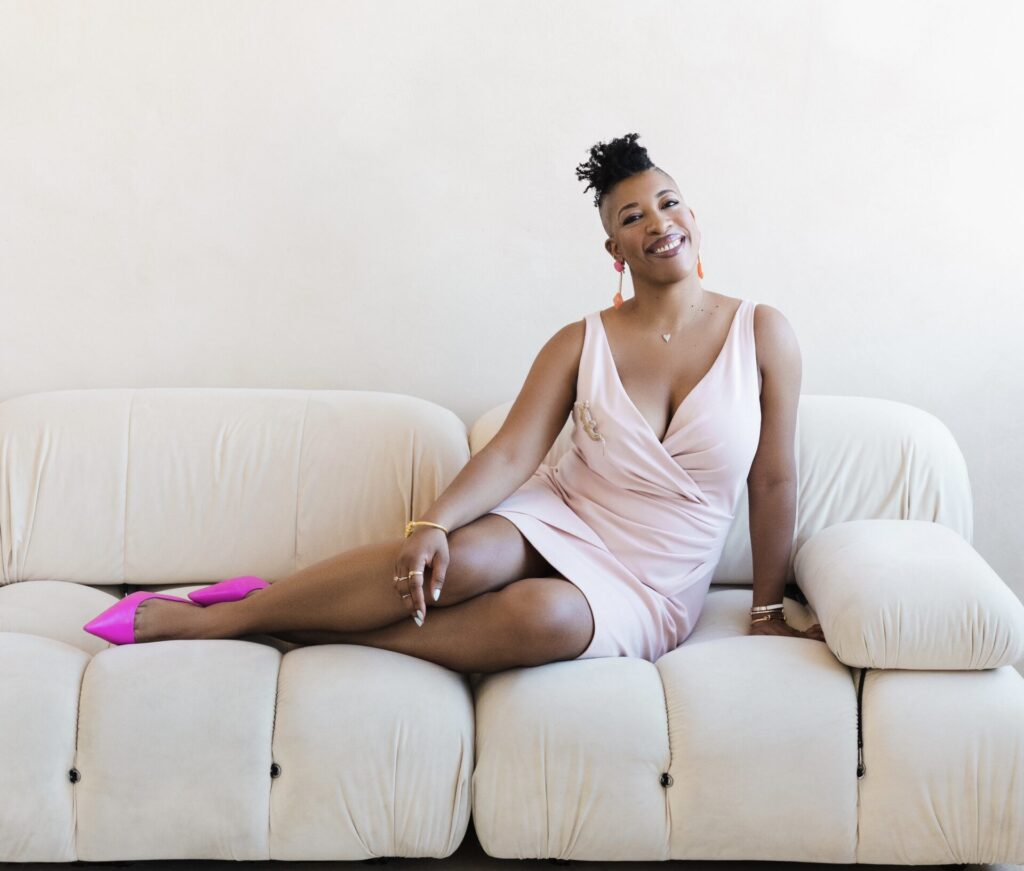Posts Tagged ‘#Jasminecrockett’
The Kink of Public Humiliation: Workplace Devaluation and Black Women’s Expected Forgiveness
Gone are the days of Black women turning the other cheek in the workplace after enduring disrespect and abuse. The idea of Black women as bottomless pits of forgiveness is rooted in a white supremacist view of professionalism, according to Leah Goodridge, a nationally renowned attorney, thought leader and writer.
Many saw the exchange in May between Rep. Jasmine Crockett, D-Texas and Rep. Marjorie Taylor-Greene, R-Georgia when Greene remarked that Crockett’s “fake eyelashes” were a hindrance to her reading comprehension during a meeting to discuss Merrick Garland. When Greene made her comments, there were no calls by Republicans for her to apologize. Yet when Crockett clapped-back by calling Greene a “bleach-blonde, bad-built, butch body,” Republicans called for her to soften the tone saying she should’ve moved forward and remained silent in the face of Greene’s jealous, “mean-girl” rhetoric with racist undertones with the purpose to publicly humiliate Crokett. Unlike the her republican colleagues, many Black women cheered Crokett’s response.
“The reason Rep. Crokett’s clapback resonated so deeply, especiaoly with Black women is because it marks a cultural moment where we are moving away from this concept of forgiveness.”
Goodridge feels that some white people enjoy being a spectator to Black women’s abuse, a behavior she says is rooted in anti-blackness.

“This is like a kink, you know, watching Black women get devalued publicly and publicly shamed, and publicly put in their place. Then it’s another form of a kink for some people when that disrespect happens, and then Black women are expected to forgive.”
Colleagues had an expectation that Crokett ignore the transgression, yet there was no call for Greene to apologize. This happens more often than reported in many workplaces across the country. Most Black women do move on and pretend nothing happened, sometimes as a form of job preservation and often under the guise of being professional.
“We have been taught as a part of white supremacy about what professionalism looks like for us, and it is a very different version than what any white person is held to.”

Some may find moving forward without standing up for themselves difficult when trying to maintain a level of respectability.
“You may want to respond back in kind, but there’s going to be a voice in your head that says, ‘Oh, I don’t want to look ratchet, I don’t want to be that person in the meeting’.”
Once the disrespect starts and it’s not corrected, it could begin a cycle of abuse where Black women are disrespected, then expected to constantly let things go.
So how do Black women approach this unwritten rule that they are expected to constantly forgive, sometimes the unforgivable, in the workplace?
“The first thing I want to say to Black women is, number one, give yourself some grace.”
Goodridge says that some Black women may be triggered by the abuse and freeze in response to workplace trauma. Freezing may render them unable to respond in the moment and then afterwards, they beat themselves up. Goodridge believes it’s important to be kind to yourself.
“Focus on the person who did the action and the fact that what was done to you was wrong.”
She says it can be easier for Black women to give grace to the person who harmed them, instead of themselves – giving them a pass for behavior under the guise that it wasn’t intentional, or they didn’t know the weight of their actions.
“The reality is, a lot of the time, they do know, this is why they do it publicly. It’s a kink, and they do it because they’re aware that we’re unprotected and nothing’s going to happen to them.”
Goodridge suggests professionally calling out the behavior, either in email or in a quick meeting. Afterwards, she suggests moving on with the day – avoid ruminating and telling others what happened.
Another recommendation is to make a note of colleague’s behaviors. Avoid those who gossip, mistreat others – and mark them as ‘unsafe’. Those that are marked unsafe should be handled with a careful distance and with conversation and interactions as the work requires.
“If that person is not a safe person in the workplace, they are not going to be my workplace BFF.”
